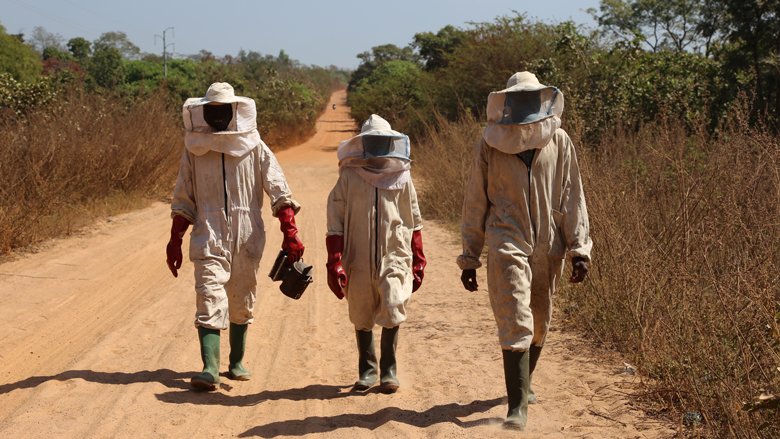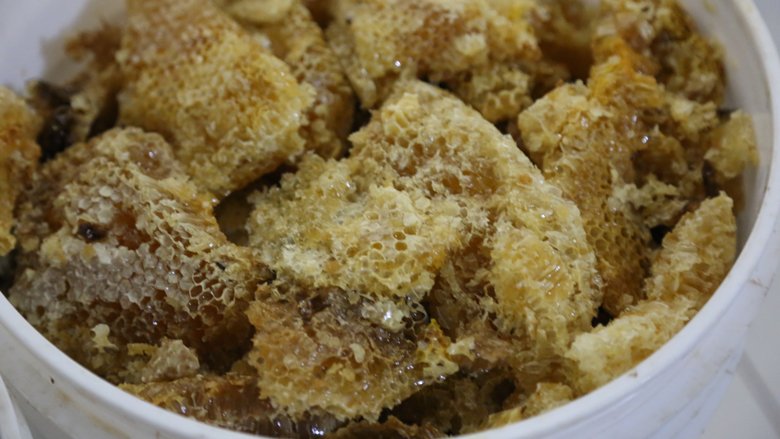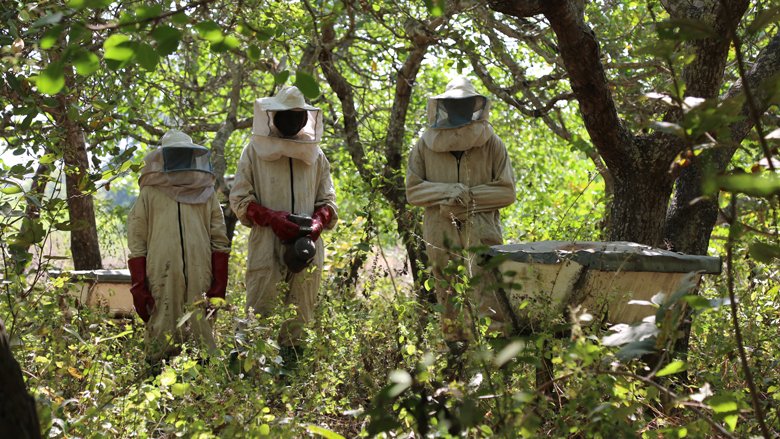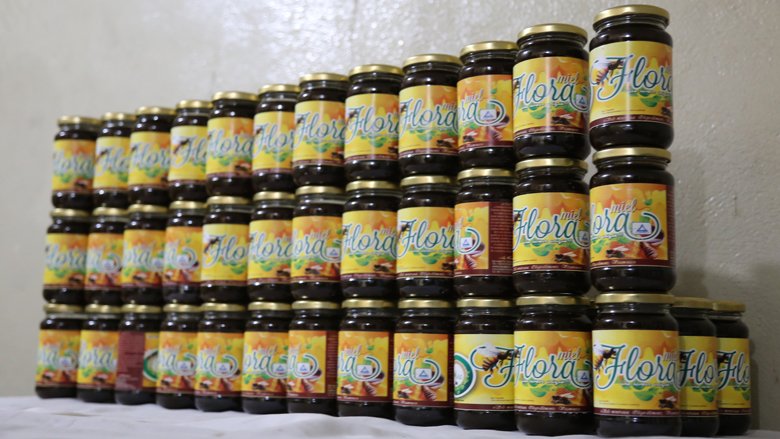KINNOU-KPANOU, Benin, April 5, 2022 — In the supermarkets of Cotonou, jars of “Flora” honey have been a real hit with consumers. But what city dwellers often do not realize is that by buying this natural product, which is packaged in the village of Komiguéa, more than 450 kilometers from the country’s economic capital, they are contributing to economic growth and helping to preserve the environment of an entire region.
The journey began about 10 years ago when the International Center for Tropical Apiculture (Centre Intégré d'Apiculture Tropicale, CIAT), which developed the Flora brand, began buying honeycomb directly from beekeepers’ cooperatives in central and northern Benin before packaging the product in small 30-centiliter jars and distributing them in the country’s major supermarkets. “We work with 76 cooperatives that we train to produce quality honey. We teach them good practices for managing beehives and processing honey, and we show them how to extract wax and propolis,” explained Sarigui Amadou, who heads up beekeeping operations at CIAT. “This is a sector that is really taking off, with better organized, better trained cooperatives that we are helping to ensure the traceability of their production.”





